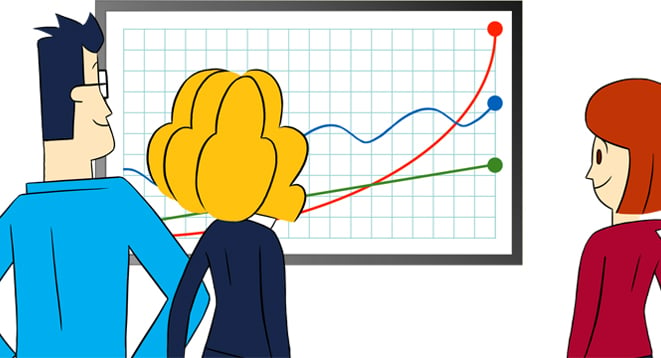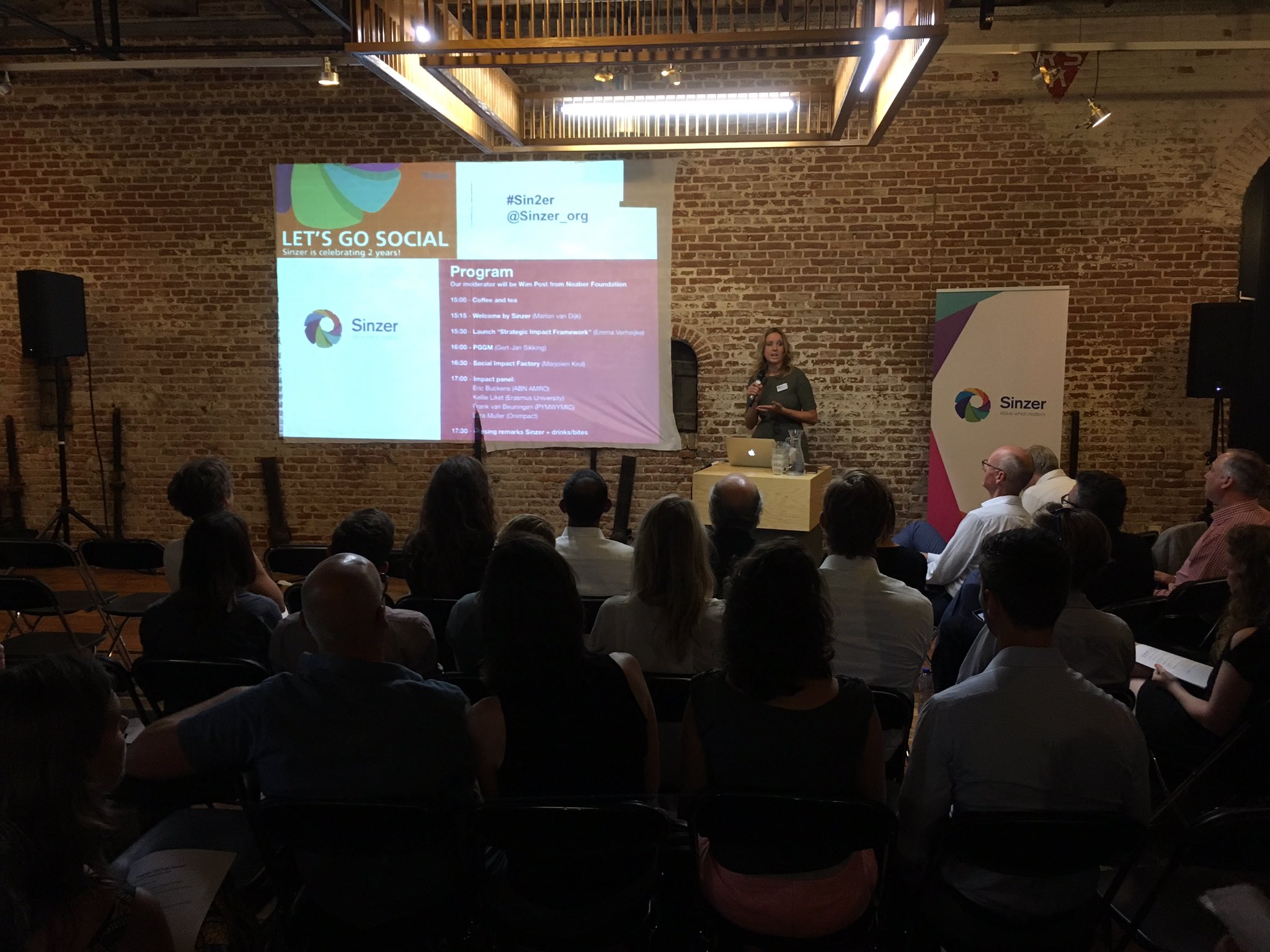After the successful launch of Sinzer two years ago, we felt it was time to celebrate our successes as well as share some of our clients’ best practices. We therefore organised our event “Let’s Go Social” which took place the 15th of September. Around 120 people from a wide range of organisations attended the event to celebrate Sinzer’s 2nd anniversary with us.
Topics: Social impact, Social change, Social accounting, Social Value
Hoe zet je als social enterprise impactmeting strategisch in?
De Social Enterprise monitor 2016 laat zien dat het goed gaat met de Social Enterprise sector: de sector groeit, is minder afhankelijk van subsidies en heeft minder moeite dan voorgaande jaren om financiering aan te trekken. Daarnaast geeft 60% van de ondervraagden in de monitor aan dat zij op enige wijze maatschappelijke impact meten, bijna 10% meer dan in 2015. Goed nieuws, want om je onderneming te laten groeien is een goed begrip van je maatschappelijke waardecreatie cruciaal. De uitdaging voor veel van deze sociaal ondernemingen blijft echter: hoe kun je met beperkte middelen maatschappelijke impactmeting zo inzetten dat dit je zowel stuurinformatie oplevert, als informatie om verantwoording af te leggen aan investeerders, potentiele investeerders aan te trekken en klanten aan je te binden. Waar leg je de focus?
Topics: Social impact, Social enterprise, Social change, Social Value, maatschappelijke impact, Social Impact Strategy, impactmeting, maatschappelijk rendement
How can social investors measure the social impact of multiple projects in a cost-efficient way?

In the philanthropic sector, measuring social impact is still perceived as a challenge. The number of projects a social investors funds, combined with their diversity often result in large time and resource investments for both the investor and the investee (or grantee). Many social investors therefore feel they do not have the means to measure more than a few outputs, like the number of participants or workshops, or the total amount of volunteer work. Although this is a good starting point, it only scratches the surface of what the project or program has established, and tells you nothing about the true impact (and value) it has created. Has the target audience really been reached? Have their circumstances been changed? Only by giving a voice to the beneficiaries will you be able to decide if the right investment choices have been made.
Topics: Impact measurement, Value, Social impact, Stakeholders, Social change, philanthropy

Social enterprises are united by one common goal: creating social change through business. Though social enterprises aim for both financial as social impact, many are – at least in part – funded by public money, foundations or do-good investors. These funds are granted not to be cashed back in dividend, but rather with the aim of creating as much social impact as possible. You would expect therefore, that all social enterprises know exactly how much social impact they are creating for whom, and which of their actions is the main value driver behind it. Especially because this knowledge holds the key to further amplify their impact, as well as accelerate and scale their businesses. Yet, many social enterprises do not measure their social impact. This blog post provides three key reasons that will surely convince all Social Enterprises (and their funders) to join the measuring camp!
Topics: Impact measurement, Social enterprise, Social change

The impact concept has moved from the discussion of benefits, returns and value creation, to 'How much impact?' and 'What is your impact?'. We now have 'impact investors and 'imspiring impact' and lovely new words like 'impactful'. Jeremy Nicholls from The SROI Network feels uneasy.
Topics: Impact measurement, Making a difference, Social change
-1.jpg?width=232&name=GT%20Sinzer_logo_screen_descriptor%20(1)-1.jpg)


